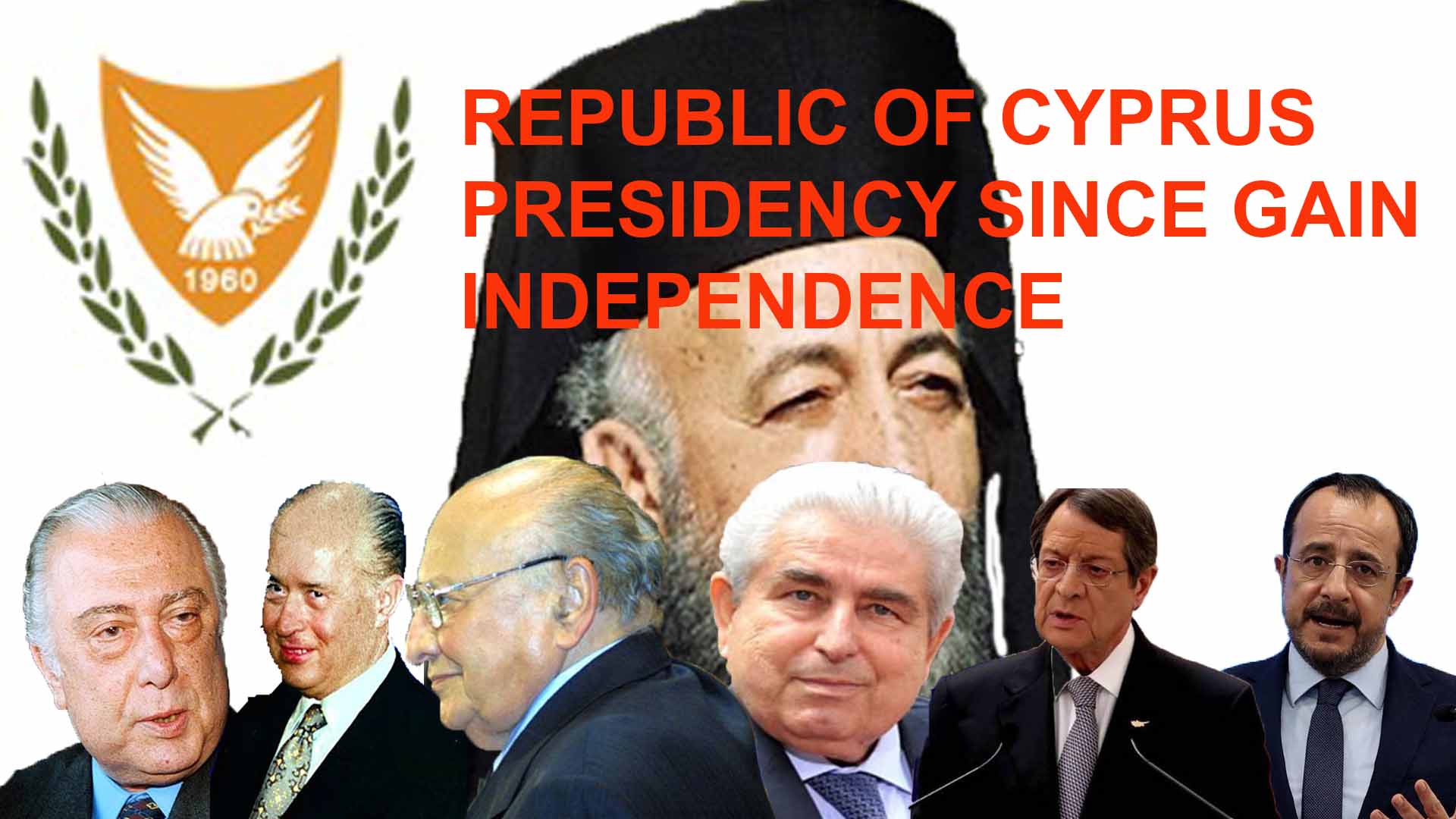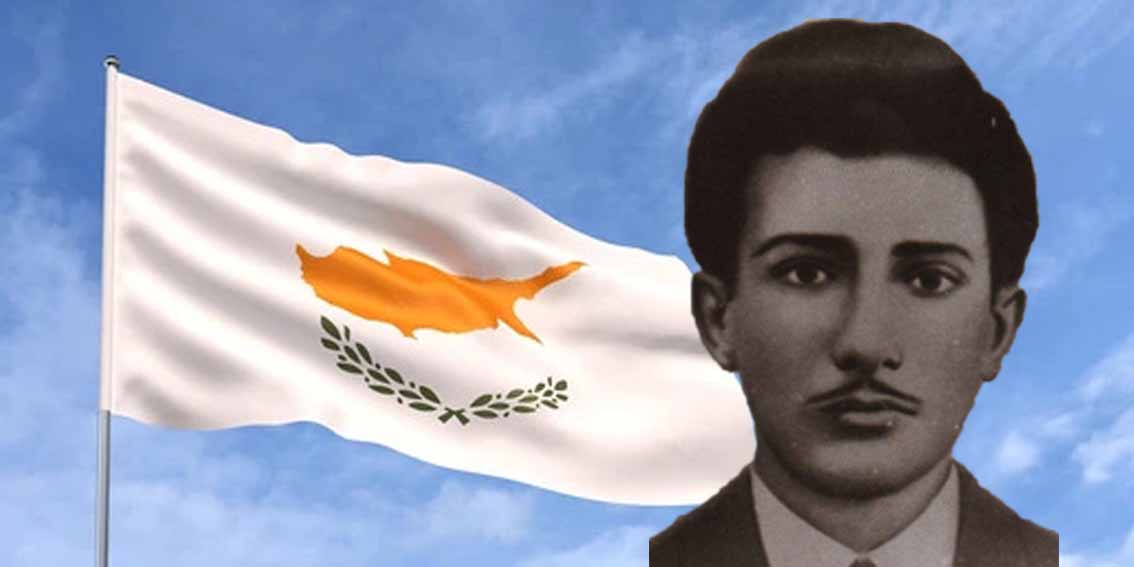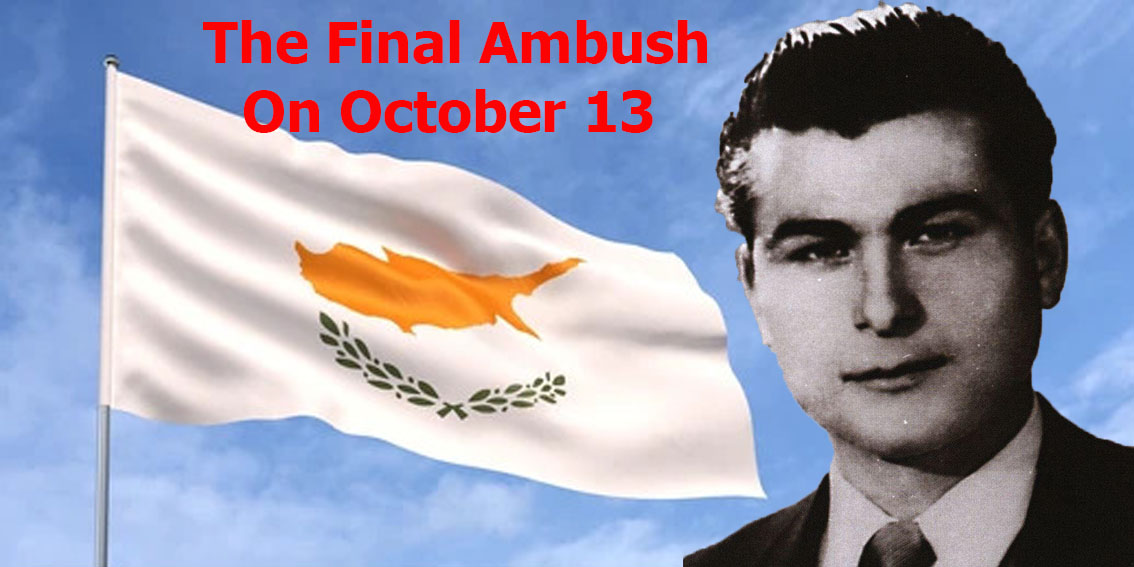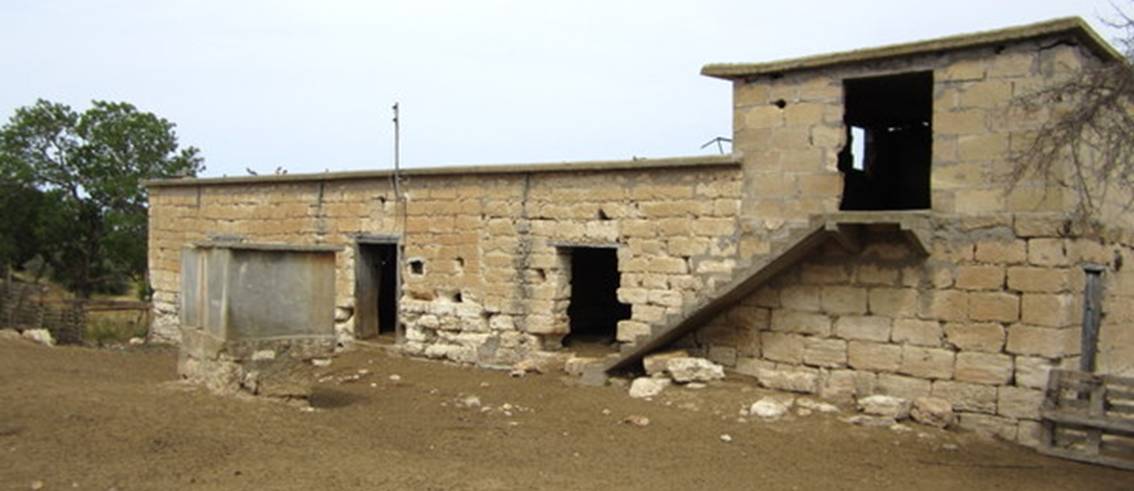The Magnificent Seven
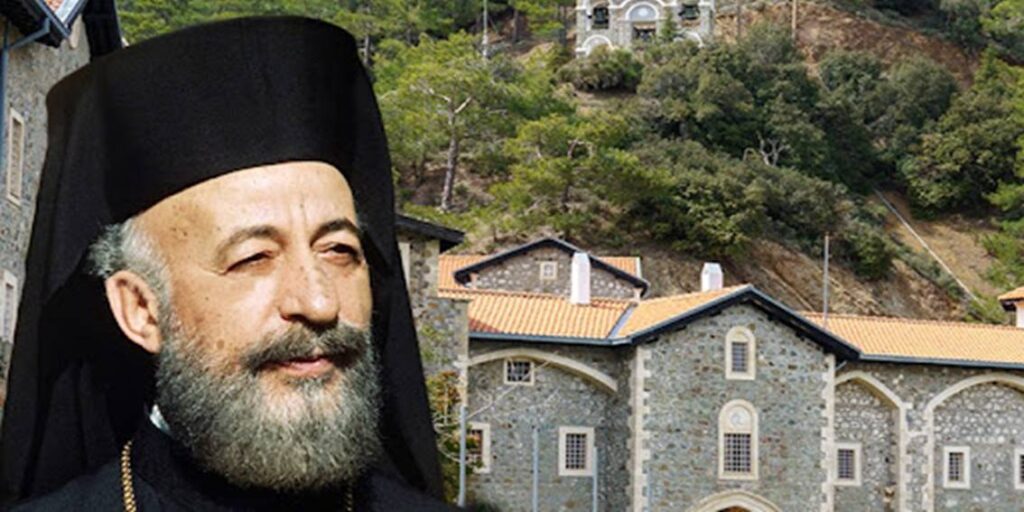
The First President: Archbishop Makarios III (1960-1977)
The Presidents of Cyprus: Archbishop Makarios III became the first President of the Republic of Cyprus in 1960. He led the new nation immediately after it gained independence from British rule. The constitution of the young republic complex power-sharing arrangements between the Greek Cypriot and Turkish Cypriot communities. Makarios faced the monumental task of uniting the island’s two main ethnic groups under a single, functional state.
Navigating Early Tensions
The President soon struggled with the constitution’s provisions, which he and many Greek Cypriots believed created administrative deadlock and hindered effective governance. In 1963, he proposed thirteen amendments to streamline the state, an act that Turkish Cypriots fiercely opposed. This triggered severe intercommunal violence, leading to the collapse of the power-sharing government. The crisis resulted in the displacement of thousands and forced Turkish Cypriots into enclaves, prompting the arrival of a UN peacekeeping force in 1964.
The Coup and Invasion
Makarios’s presidency weathered a decade of instability. His shifting stance on Enosis—union with Greece—created powerful enemies. He initially supported the concept but later championed an independent, non-aligned Cyprus. This infuriated the military junta in Greece and extremist Greek Cypriot nationalists. On July 15, 1974, the junta backed a brutal coup that forced Makarios to flee the island for his life. The coup provided the pretext for Turkey’s military intervention five days later. Turkish forces established a bridgehead and, after a second offensive, occupied over a third of the Republic’s territory.
A Transformed Nation
Makarios returned to Cyprus in December 1974 as President, but he presided over a tragically partitioned nation. The war had created a massive humanitarian crisis with thousands of dead, missing, and displaced persons. His final term focused on managing the aftermath of the invasion through international diplomacy. He consistently advocated for the withdrawal of Turkish troops and the return of refugees to their homes, principles that remain central to the Cyprus problem today. Archbishop Makarios III served until his death in 1977, leaving a legacy defined by the founding of the republic and its subsequent, tragic division.
A Succession of The Presidents of Cyprus : Post-1974
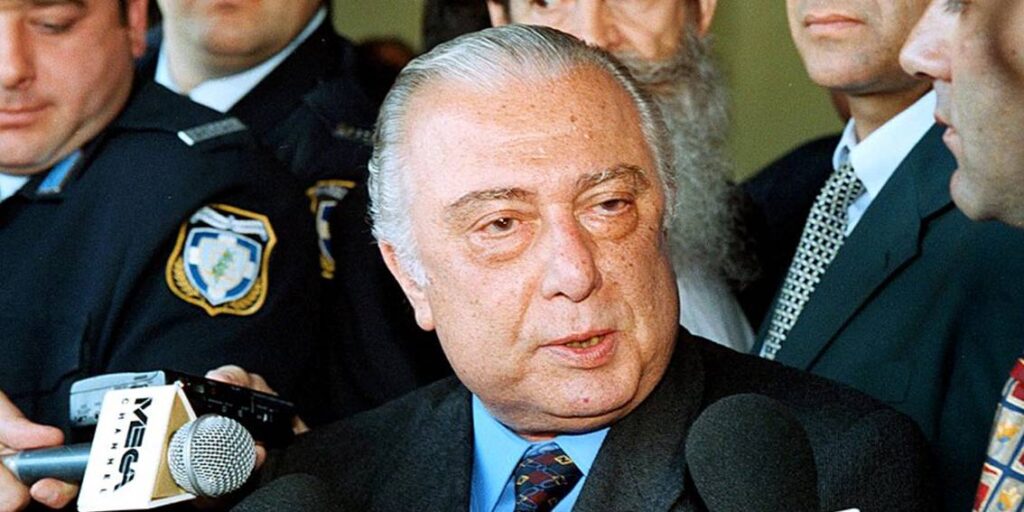
The Presidency of Spyros Kyprianou (1977-1988)
Spyros Kyprianou became President of Cyprus under tragic circumstances following the death of Archbishop Makarios III in August 1977. As the President of the House of Representatives, Kyprianou automatically assumed the role of acting president, completing Makarios’s term. This transition marked a significant generational shift in Cypriot politics, moving from a charismatic religious and national leader to a seasoned political operator.
Securing His Own Mandate
Kyprianou moved quickly to consolidate his position and establish his own political authority. He won his first full presidential term in 1978, running as the candidate for the Democratic Party, which he founded. The electorate confirmed his leadership again in 1983, granting him a second five-year term. These victories demonstrated that Kyprianou had successfully emerged from Makarios’s shadow and built his own political base.
Navigating Post-Invasion Realities
Kyprianou’s entire presidency unfolded in the direct shadow of the 1974 Turkish invasion and occupation. His administration faced the ongoing reality of a partitioned capital and displaced populations. He dedicated significant diplomatic energy to maintaining international condemnation of Turkey’s military presence. Kyprianou worked tirelessly at the United Nations and other international forums to keep the Cyprus problem on the global agenda and isolate Turkey diplomatically.
Diplomatic Initiatives and Setbacks
The President engaged in several rounds of high-level negotiations under UN auspices. He participated in summits with Turkish Cypriot leader Rauf Denktash, most notably in 1979 when he agreed to a ten-point framework for further talks. However, these discussions consistently stalled over fundamental disagreements regarding the shape of a future federal state. A significant diplomatic setback occurred in 1983 when Denktash unilaterally declared the “Turkish Republic of Northern Cyprus,” an act that only Kyprianou’s government and the UN Security Council condemned.
Economic and Domestic Challenges
Domestically, Kyprianou governed a nation grappling with the profound economic and social consequences of invasion. His administration managed the immense challenge of supporting refugee communities and stabilizing an economy that had lost significant resources and infrastructure. While his foreign policy maintained a firm line on the national issue, his later years saw some political controversy, including a significant dispute with his own foreign minister. Kyprianou ultimately served eleven years, leaving a legacy defined by diplomatic steadfastness in preserving the Republic’s cause on the world stage during a deeply challenging period.
The Presidency of George Vassiliou (1988-1993)
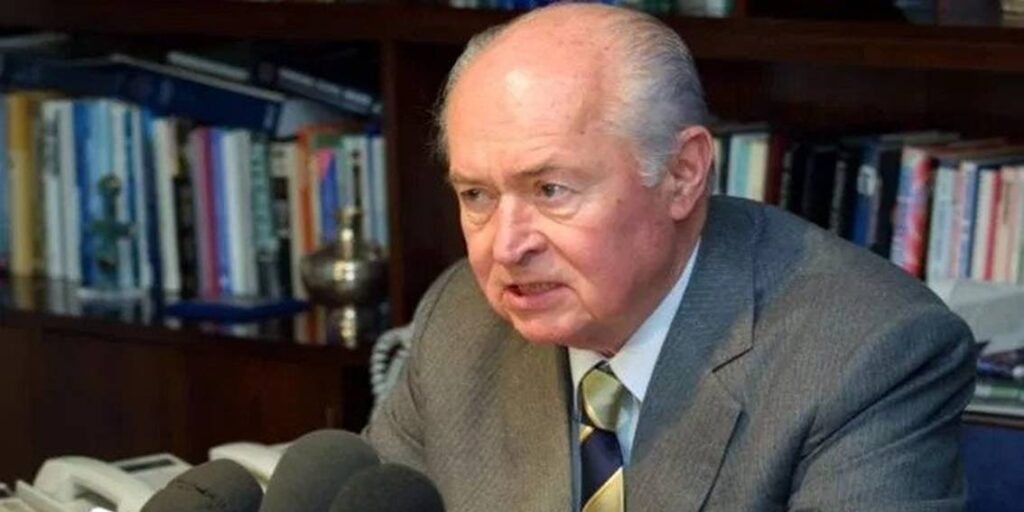
A Political Outsider’s Victory
George Vassiliou achieved a surprising political upset in the 1988 presidential election. He succeeded Spyros Kyprianou by running as a genuine independent centrist candidate. A successful economist and businessman with no prior party affiliation, Vassiliou represented a clear break from the established political order. His victory reflected a public desire for a fresh, pragmatic approach to the nation’s most pressing issue: the Cyprus problem.
A New Approach to the Cyprus Problem
Vassiliou immediately initiated a new diplomatic momentum upon taking office. He established a direct and sustained dialogue with the Turkish Cypriot leader, Rauf Denktash. The two leaders engaged in a lengthy series of meetings under the auspices of the United Nations. Vassiliou’s technocratic and flexible style created a more constructive atmosphere for negotiation than had existed for years. His administration focused on building confidence and exploring potential compromises on the core issues of governance, territory, and security.
The European Vision
President Vassiliou made the most strategically significant decision of his presidency in 1990. His government formally applied for full membership in the European Community. Vassiliou understood that this move would fundamentally alter the dynamics of the Cyprus problem. He argued that anchoring Cyprus within Europe would provide immense political and economic stability. Furthermore, he believed EU membership would create a new, irresistible framework for reunification, based on common European law and values, which would supersede old antagonisms.
Domestic Policy and Economic Management
As an economist, Vassiliou brought a technocratic focus to domestic governance. His administration worked to modernize the Cypriot economy and reduce the state’s bureaucratic inefficiencies. He promoted liberal economic policies aimed at attracting foreign investment and diversifying the economic base beyond traditional sectors. While his primary focus remained on foreign policy, his tenure saw steady economic growth and the continued development of the island’s infrastructure and business services.
A Single Term Legacy
George Vassiliou served a single five-year term. He lost the 1993 election to Glafcos Clerides, who represented the conservative Democratic Rally. Despite leaving office after one term, his legacy proved profound and enduring. He is widely credited for launching Cyprus on its irreversible path toward European integration. His application set in motion the process that would culminate in EU membership a decade later. While his talks with Denktash did not produce a final settlement, they maintained a crucial channel of communication and kept the hope of a federal solution alive. His presidency demonstrated the impact of a pragmatic, forward-looking leader on the national trajectory.
The Era of Glafcos Clerides (1993-2003)
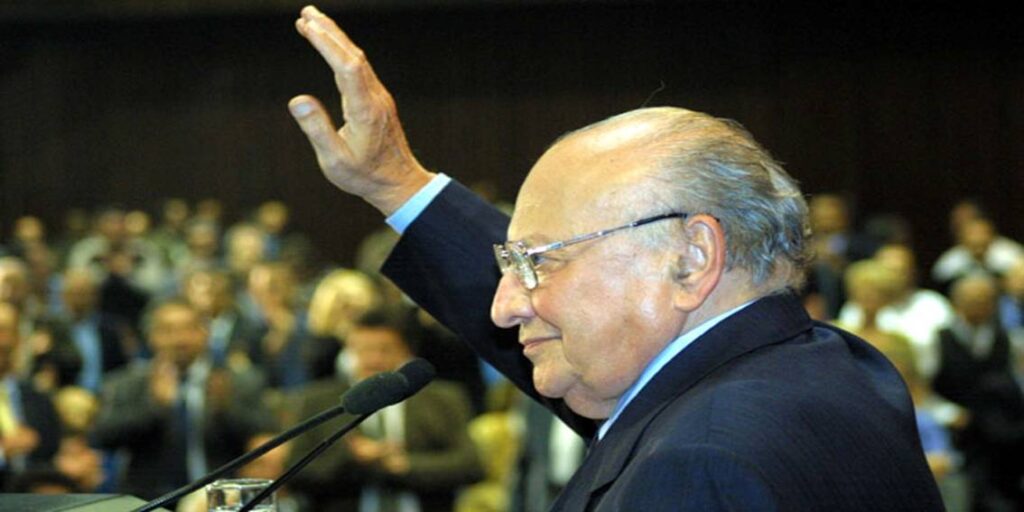
A Veteran Leader Takes Office
Glafcos Clerides, a veteran of Cypriot politics and a founding figure of the republic, won the presidency in 1993. He succeeded George Vassiliou, bringing immense experience as a former negotiator and acting president following the 1974 crisis. His two terms in office constituted a period of profound transformation for Cyprus, defined by a strategic pivot toward Europe and a sustained pursuit of reunification.
The Drive for European Union Membership
President Clerides made European Union membership his administration’s overriding strategic goal. He recognized that accession would provide Cyprus with significant political and economic security. His government aggressively pursued the harmonization of Cypriot laws with the EU’s acquits communautaire and successfully concluded accession negotiations. This effort culminated in 2004, just months after he left office, when Cyprus formally joined the European Union.
The Annan Plan and Reunification Efforts
Concurrently, Clerides actively engaged in the UN-brokered reunification process. He built a notable rapport with Turkish Cypriot leader Rauf Denktash and participated in numerous rounds of talks. The most significant diplomatic effort of his second term culminated in the UN Annan Plan. Clerides believed the plan offered a historic chance to end the conflict and became a strong advocate for its approval. However, he faced fierce opposition from a significant portion of the Greek Cypriot political establishment.
Economic Modernization and Growth
On the domestic front, Clerides presided over a period of economic modernization. His government implemented policies that liberalized the economy and attracted foreign investment. He championed major infrastructure projects and oversaw the creation of a modern financial services sector, laying the groundwork for the island’s development as an international business hub.
A Dual Legacy
Glafcos Clerides secured Cyprus’s place in Europe, an achievement that continues to define the republic. His courageous push for a settlement demonstrated a consistent dedication to ending the decades-long Cyprus problem. His presidency therefore left a dual legacy: the concrete success of EU accession and the unresolved ambition of reunification.
The Christofias Era and Shifting Dynamics 2008-2013
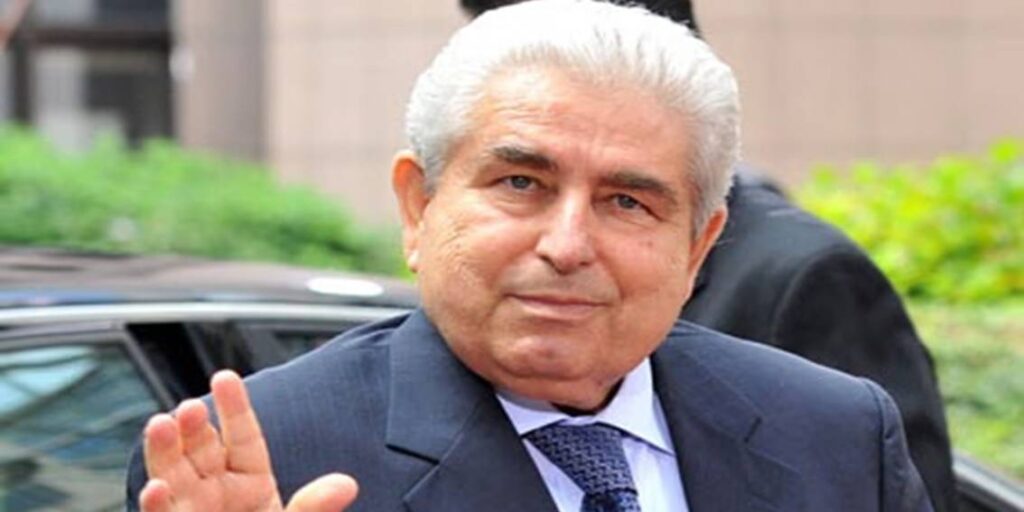
A Historic Election
The 2008 presidential election marked a historic shift in Cypriot politics. Voters elected Demetris Christofias, General Secretary of the Progressive Party of Working People (AKEL). His victory made him the European Union’s first communist head of state. This outcome generated a significant wave of optimism across the island, particularly regarding a potential solution to the Cyprus problem.
Renewed Hope for Reunification
Christofias enjoyed a close, long-standing personal relationship with Turkish Cypriot leader Mehmet Ali Talat. Immediately upon taking office, he fulfilled his key campaign promise by re-engaging directly with Talat. The two leaders launched an intensive, UN-facilitated negotiation process. They held countless meetings aiming to bridge the gaps on core issues like governance, power-sharing, property rights, and territory. Their dialogue created a genuine sense of momentum and possibility that distinguished this period from earlier, stalemated talks.
Domestic Crises and Erosion of Support
This hopeful phase gradually succumbed to immense political and economic pressures. The negotiations progressed with painstaking slowness and failed to produce a decisive breakthrough. Then, in 2011, a massive explosion at the Evangelos Florakis naval base destroyed the island’s largest power station. The catastrophe caused prolonged blackouts and billions in damages. The public held Christofias’s government responsible for profound negligence, leading to the resignation of his defence minister and a severe erosion of popular support.
Economic Collapse and Legacy
Concurrently, the global financial crisis exposed severe vulnerabilities in the Cypriot economy. Christofias’s government struggled to manage soaring public debt and a collapsing banking sector. By 2013, Cyprus faced a severe liquidity crisis and sought a brutal €10 billion international bailout. The bailout terms included the controversial “bail-in” of uninsured bank deposits, which traumatized the nation’s economy. This economic catastrophe completely overshadowed the stalled reunification talks. Christofias left office in 2013 with his popularity at a historic low, his presidency defined by the collision of high hopes for peace with the harsh realities of economic collapse.
Nicos Anastasiades: The Sixth President of Cyprus 2013-2023
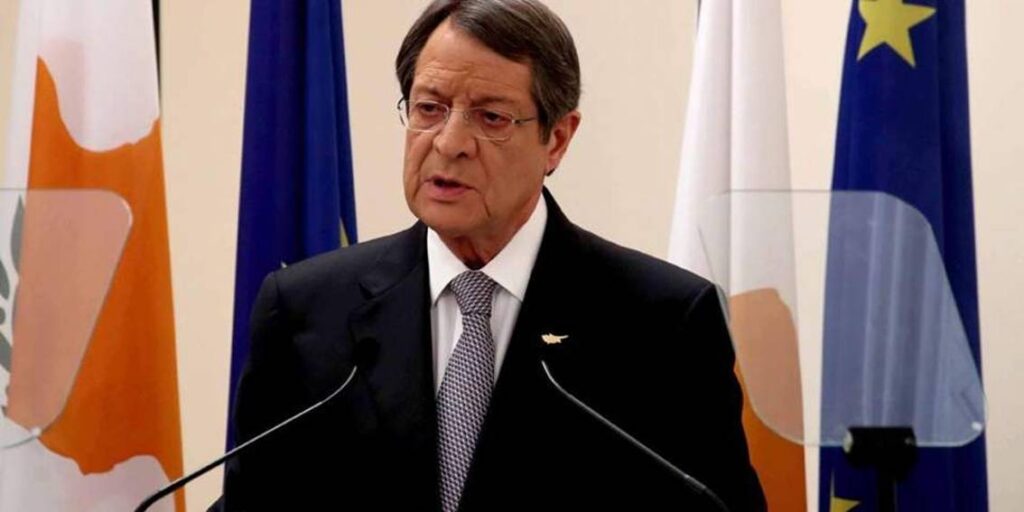
Electoral Victory amid Crisis
Nicos Anastasiades of the conservative Democratic Rally party (DISY) won the presidential election of February 2013. He assumed office at the most critical juncture in the Republic’s modern history. The Cypriot economy was in freefall, teetering on the brink of total collapse following the financial policies of the previous administration. His immediate and singular focus was securing a rescue package to prevent national bankruptcy.
Navigating the Financial Meltdown
Within weeks of his inauguration, Anastasiades faced an unprecedented European ultimatum. To secure a €10 billion bailout from the European Stability Mechanism and the International Monetary Fund, Cyprus had to confront the failure of its two largest banks. In a dramatic and controversial decision, Anastasiades’s government agreed to the terms, which included the winding down of Laiki Bank and a “bail-in” of uninsured deposits over €100,000 at the Bank of Cyprus. This event wiped out savings and shocked the financial system, but it averted a disorderly exit from the Euro zone. His administration then implemented a strict, multi-year austerity program, overseeing a deep but managed economic contraction.
The Crans-Montana Summit
Anastasiades also re-engaged with the Cyprus problem, viewing a settlement as a key to long-term stability. He built a working relationship with Turkish Cypriot leader Mustafa Akıncı, and the two launched a new, hopeful negotiation phase. This process culminated in the high-level international conference in Crans-Montana, Switzerland, in July 2017. Anastasiades participated directly in the intensive talks, which focused on security and guarantees—the core of the dispute. However, after days of negotiation, the summit ended in failure. The parties could not bridge the gap on the critical issue of removing Turkish troops and guarantees, leading to a period of deep stagnation in the peace process.
A Legacy of Economic Recovery and Political Stasis
Despite the political setback, Anastasiades’s government successfully steered the Cypriot economy through its recovery. He championed policies that attracted foreign investment, particularly through the controversial “golden passport” scheme, and oversaw a return to robust economic growth and significantly lower unemployment. Winning a second term in 2018, his presidency became one of two distinct halves: a remarkable economic rebound that restored fiscal credibility and a persistent political stalemate on the national question. He left office in 2023 having stabilized the economy but without fulfilling the promise of reunifying the island.
Nikros Christodoulides: The Current President
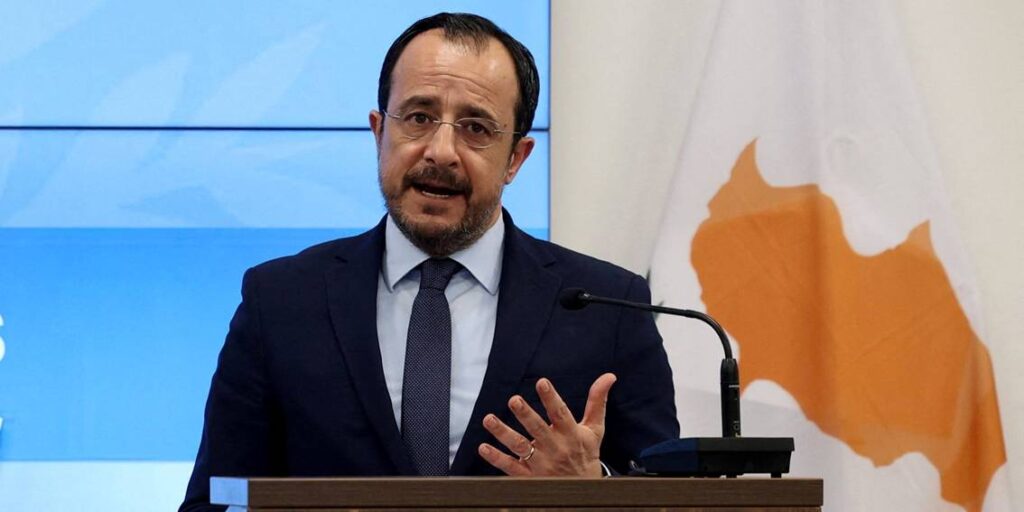
An Independent Path to Victory
Nikros Christodoulides emerged as a surprise candidate in the 2023 presidential election. He entered the race as an independent, leveraging his background as a former foreign minister and government spokesman. Christodoulides strategically positioned himself above the traditional party divisions, appealing directly to voters disillusioned with the established political class. His campaign emphasized competence, a fresh approach, and a promise of technocratic governance. He secured victory in a run-off, defeating his rival and demonstrating a public appetite for change in Cypriot politics.
Forming a Government and Setting Priorities
Upon his inauguration, Christodoulides faced the immediate task of building a governing coalition without a traditional party base. He appointed a cabinet of experts and technocrats, fulfilling his promise of a new political style. His administration quickly outlined key priorities, with a strong emphasis on revitalizing the dormant Cyprus problem talks. He also committed his government to addressing the cost-of-living crisis, improving public healthcare, and accelerating the country’s digital transformation. His approach signalled a deliberate shift from the previous administration’s methods.
Revitalizing the Cyprus Issue
Christodoulides identified the reunification of Cyprus as his government’s central, overarching mission. He appointed a dedicated envoy and began intensive diplomatic efforts to restart formal negotiations. His strategy involves a more proactive and structured engagement with the European Union, seeking a more substantial role for Brussels in facilitating a solution. He has expressed support for a bizonal, bicommunal federation and has actively worked to build international consensus and pressure. However, he faces a deeply sceptical Turkish Cypriot leadership and a Turkish government that has shown little interest in returning to the negotiation table under the established UN parameters.
Navigating Regional and Domestic Challenges
The president must simultaneously manage complex regional dynamics, including disputes over maritime boundaries and energy exploration in the Eastern Mediterranean. He continues to strengthen strategic partnerships with Greece, Israel, and the United States while cautiously navigating relations with Turkey. Domestically, his government grapples with ongoing economic pressures, the management of migration flows, and the need for structural reforms. His independent status means he must constantly negotiate for parliamentary support, testing his ability to maintain a stable and effective government.
A Presidency of Potential Transition
Christodoulides’s presidency represents a potential turning point for Cyprus. His election broke the long-standing hold of the major parties on the presidency. His success will ultimately depend on his ability to translate his fresh approach into tangible results, especially on the national issue that has defined his agenda. He currently embodies a nation’s hope for a breakthrough, but he operates within a political landscape filled with entrenched obstacles and historical grievances. The coming years will determine whether his technocratic and independent model can effectively govern and deliver on the promise of a new chapter for Cyprus.

